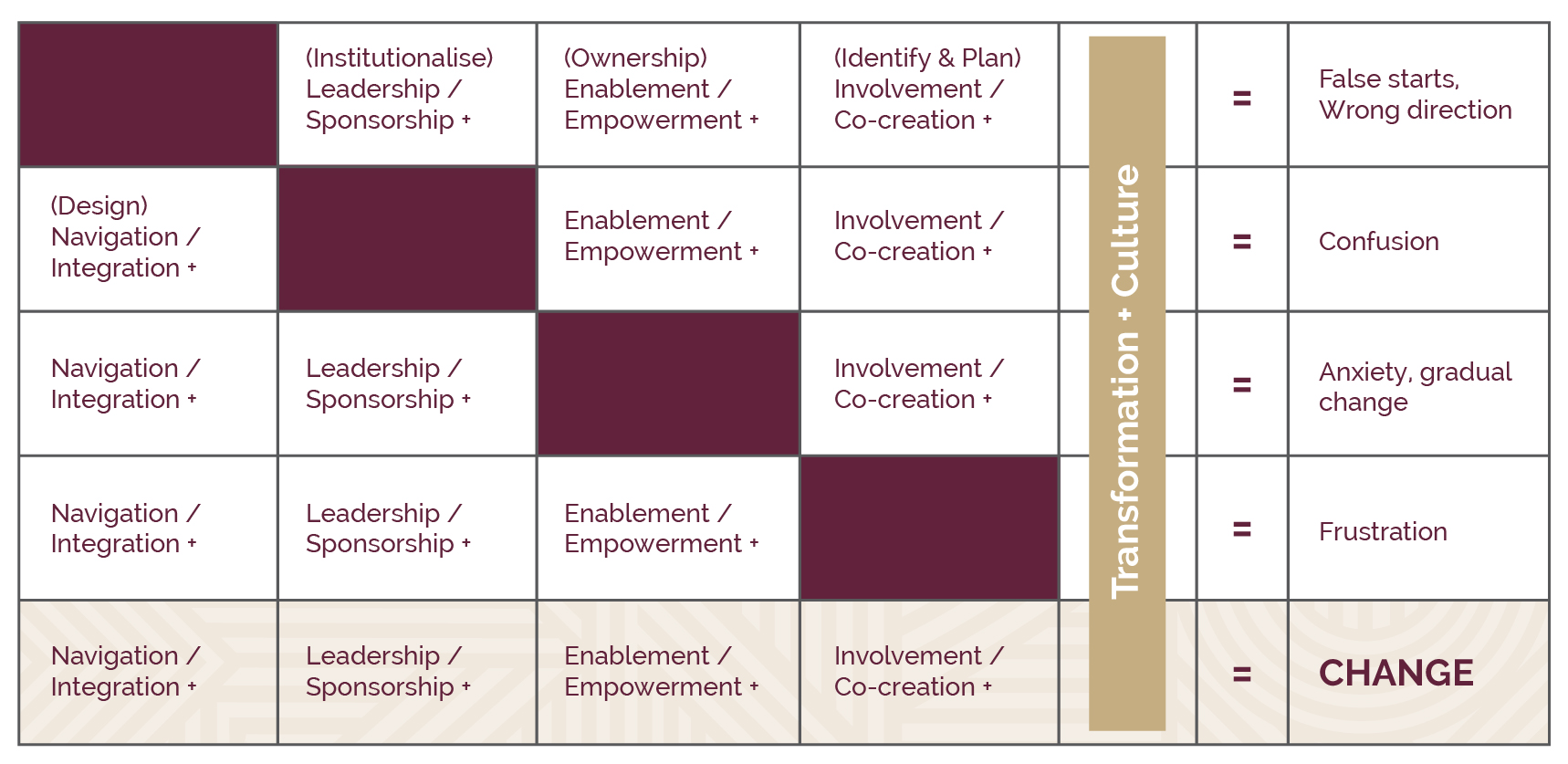Change in context
Defining change enablement
- The facilitation of a structured (planned) period of transition from situation A to situation B within a defined time period in order to achieve sustainable change (within an established organisation).
- Change enablement is not just communication and training.
- Nor is it simply managing resistance.
- Effective change enablement
follows a structured process and
employs a holistic set of tools to drive successful individual and organisational change.
-
It delivers the benefits of change (improved performance) with the least possible disruption to the business.
-
The scoping of change relates to how far (breadth), how much (depth) and what (in terms of development and transitional change), impacts on an organisation during implementation of new initiatives.
Navigating the gap between the present and the future
It is not that we do not want to change, it is the place in between that is so difficult – there is nothing to hold onto. Below is a visual representing the gap between where we are and where we want to be.
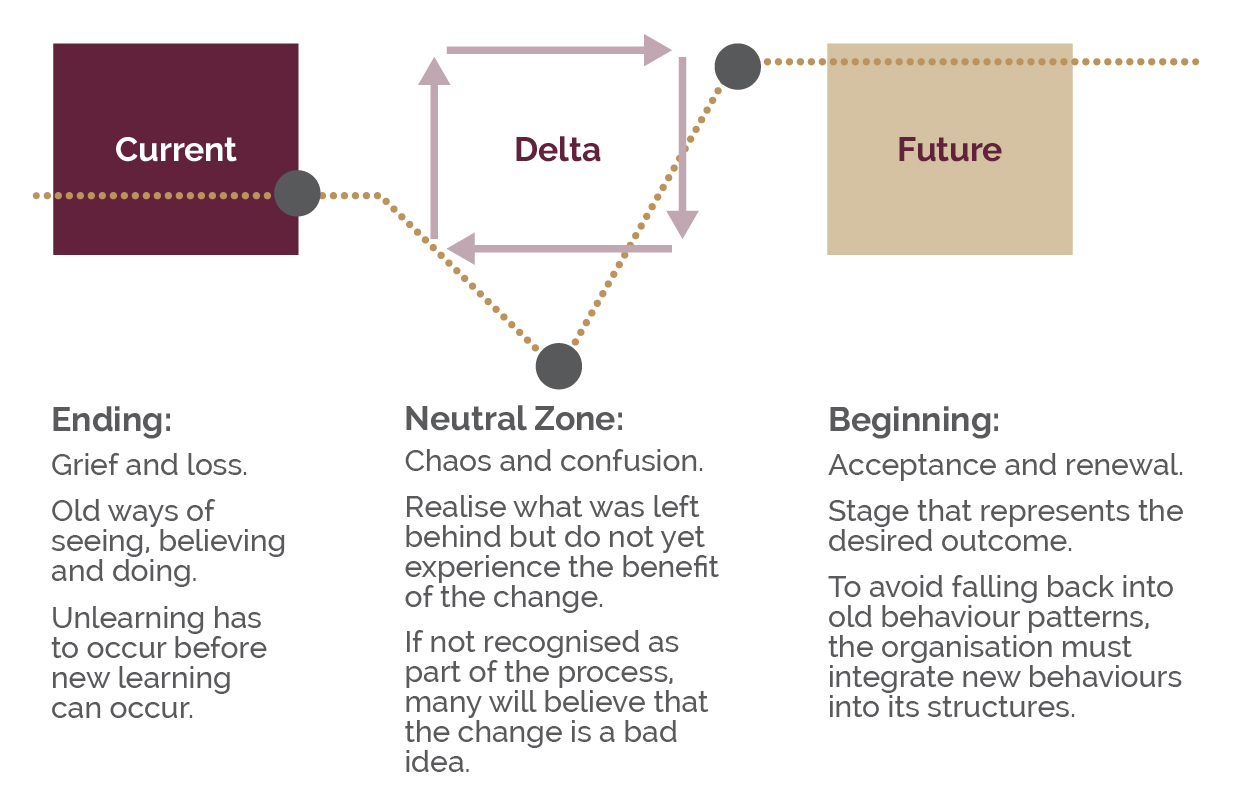
Traditional project management versus change enablement approach
- Project Management focuses on the “what and when”, which includes the following deliverables: Plan (Timelines) + Scope + Deliverables + Resources + Quality.
-
Change Enablement focuses on “how” to enable the “what and when” by mobilising people one step at a time.
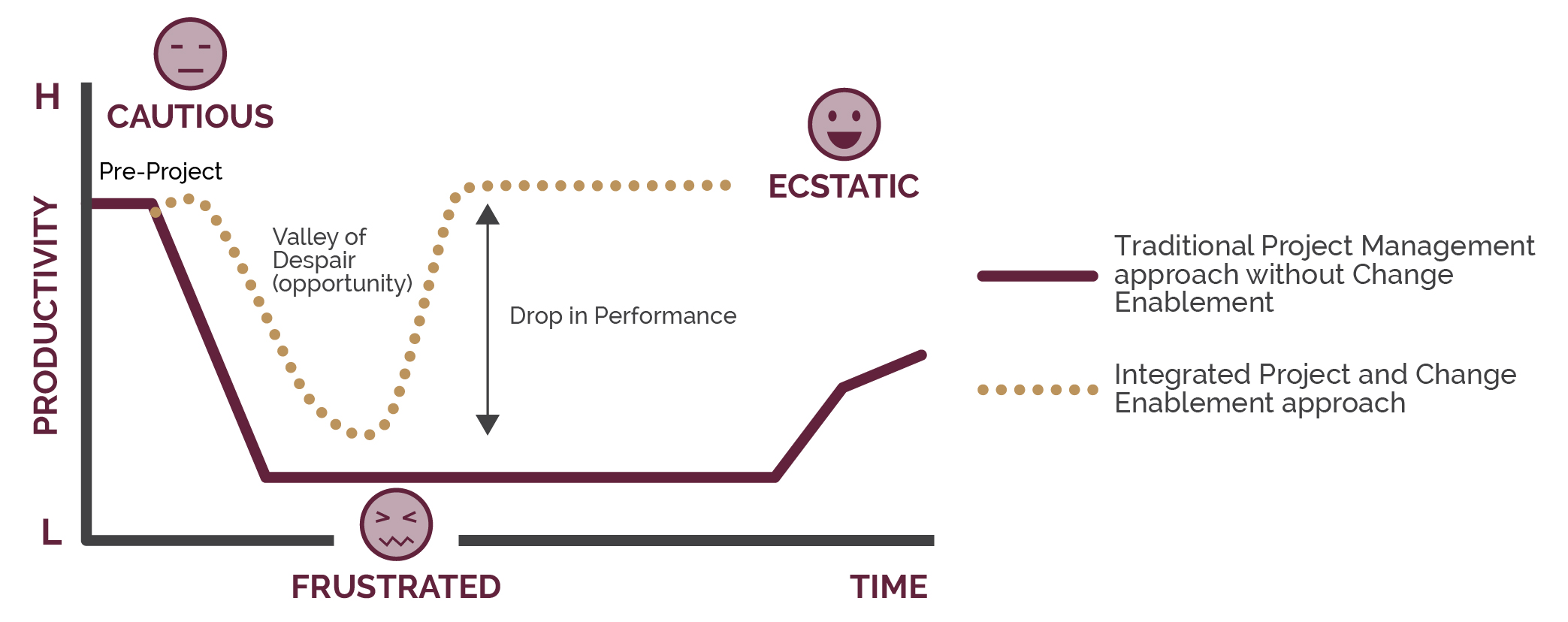
The stages of change
There are four steps in the change journey (image on the left):
- Think – use your head to envision a single version of the truth.
- Embrace – use your heart to welcome new ways of working.
- Work – use your hands to comply with new standards and cooperate.
- Progress – use your feet to accelerate change and help the business to grow.
These steps take individuals through various stages as they navigate the acceptance and adoption of change (image on the right).
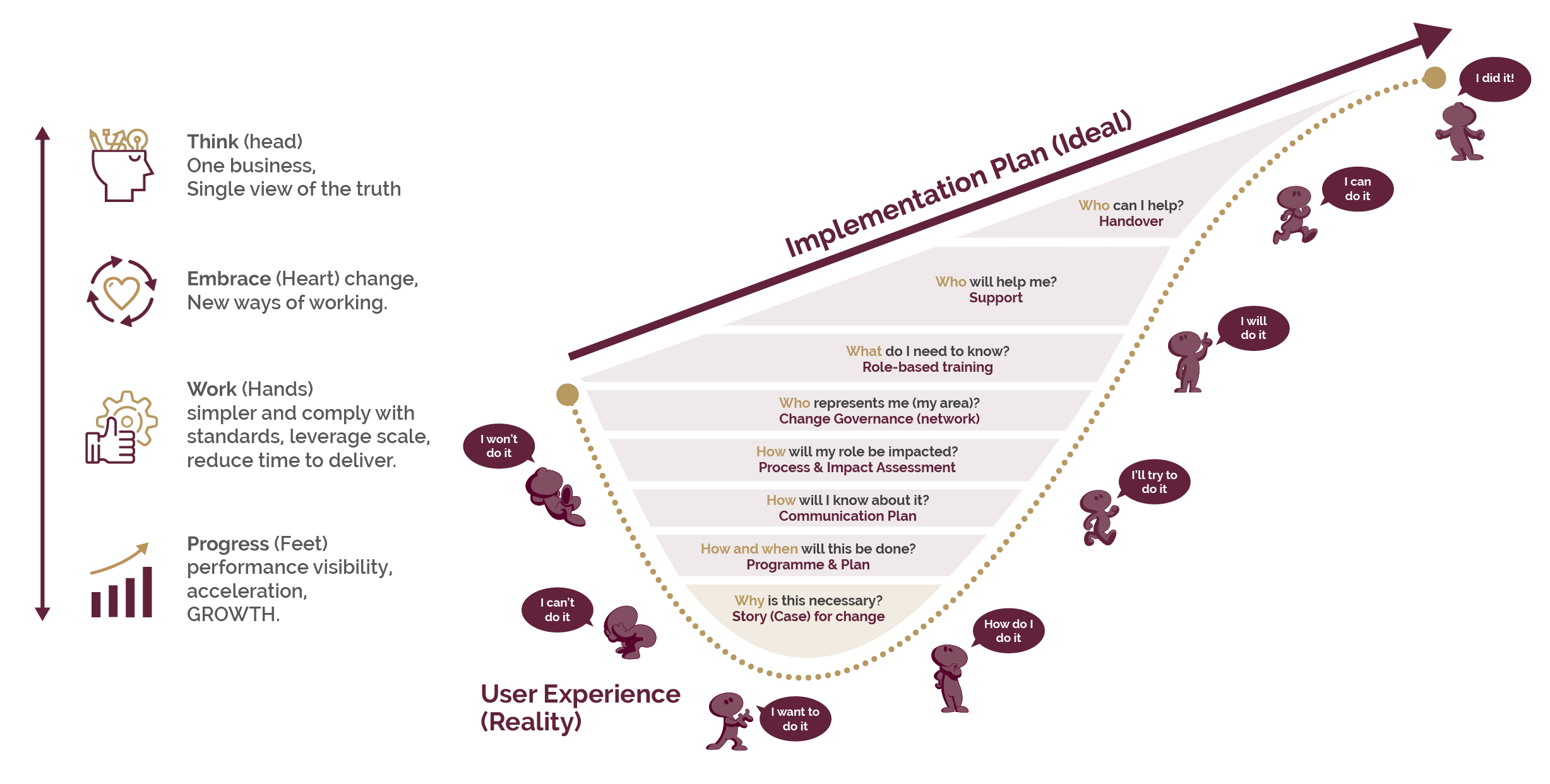
Change enablement empowers individuals by providing a framework through which they can navigate change.
The framework consists of
four main phases, with more detail on each of these phases provided in the diagram below. (Click on the circle for more expansive detail about each phase.)
- Identify and plan for change
- Design and navigate the change
- Institutionalise and enable the change
- Create change ownership and learn from change
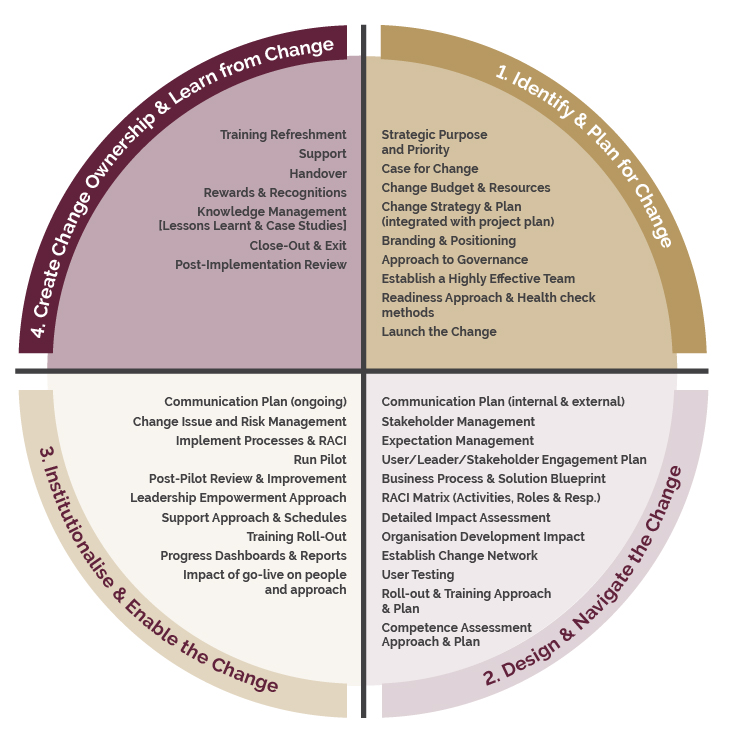
The four main components of change enablement are:
- Navigation/Integration
- Leadership/Sponsorship
- Enablement/Empowerment
- Involvement/Co-creation.
Each component is essential to deliver lasting and successful change.
